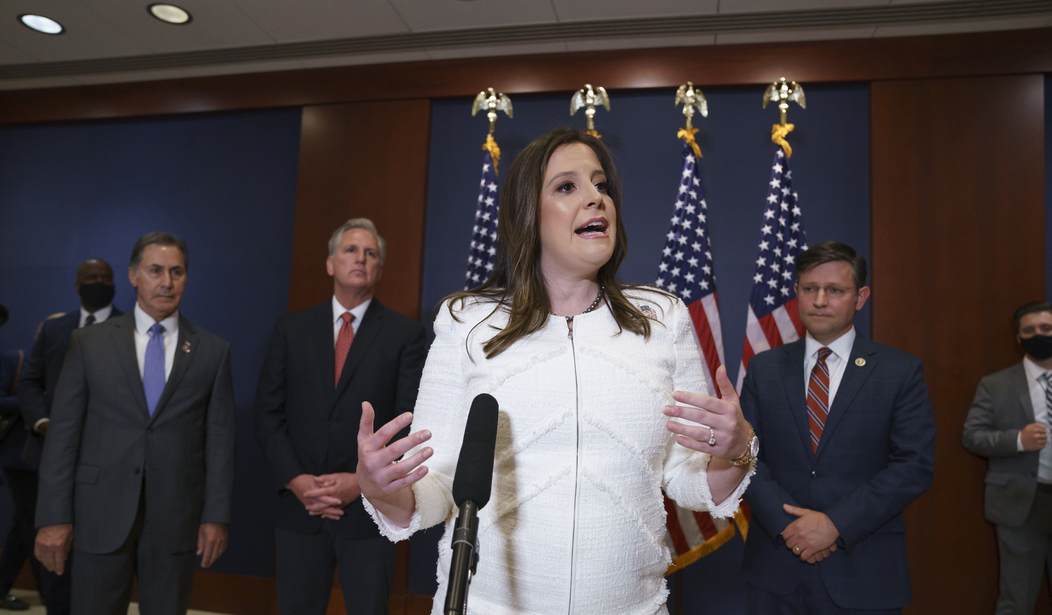In late January, news broke of multiple instances of the Capitol Police appearing to spy on Republican congressional members. Those actions followed the rank politicization of the force that took place after January 6th, including the expansion of its intelligence-gathering mission in areas that are, at best, questionable.
One example involved Sen. Rick Scott (R-FL), who expressed public outrage, via Politico.
Analysts also were tasked with sifting through tax and real estate records to find out who owned the properties that lawmakers visited. For example, the unit scrutinized a meeting that Sen. Rick Scott (R-Fla.) held with donors in a private home. Analysts eyed the homeowner’s and attendees’ social media accounts, and looked for any foreign contacts they had.
“These reports are incredibly disturbing,” Scott spokesperson McKinley Lewis said in a statement. “It is unthinkable that any government entity would conduct secret investigations to build political dossiers on private Americans. The American people deserve to know what Chuck Schumer and Nancy Pelosi knew and directed, and when. Senator Scott believes the Senate Rules Committee should immediately investigate.”
While vetting of contacts is not necessarily nefarious, it is supposed to be done out in the open and in conjunction with lawmakers. Instead, the Capitol Police have instituted a system that remains in shadows, conveniently only seeming to target Republicans.
Another disturbing example of that has emerged via The Federalist, this time involving Rep. Troy Nehls (R-TX). According to a police report filed by a USCP officer, Nehls’ office was entered without permission and his work materials were photographed because they appeared “suspicious.”
In November 2021, a USCP officer entered the congressional office of Rep. Troy Nehls, R-Tex., and took a photo of a whiteboard in Nehls’ legislative office detailing various legislative plans being considered by Nehls and his staff. In a formal police report filed several days after the incident, the officer wrote that he had been conducting a routine security patrol on Saturday, November 21, and discovered that one of the doors to Nehls’ office was open.
The report claimed that the officer entered Nehls’ office and found a whiteboard that contained “suspicious writings mentioning body armor[.]” The officer reportedly took a photo of the whiteboard, which was then passed around to analysts within USCP. The following Monday, USCP dispatched three plain-clothed intelligence officers to Nehls’ office and questioned a staffer who was there about the whiteboard and the legislative proposals it contained.
In reality, the mention of “body armor” on the whiteboard was in relation to a federal contractor in Texas who had committed fraud by supplying Chinese-made body armor instead of U.S.-made body armor.
Further, the police report was purposely filed out of context. The whiteboard contained other legislative issues on it, but they weren’t mentioned by the trespassing officer, making it seem as if Nehls was planning something with body armor. In reality, Nehls, as the former Sheriff of Fort Bend County, was actually drafting legislation to ban the procurement of Chinese-made body armor.
Regardless, the reason behind the intrusion into Nehls’ office is irrelevant. The USCP entered a private area without permission, stole information about what was inside, and then sent officers to hassle staffers afterward about it. That is so far over the line that you can look over your shoulder and still see it.
Nehls responded with the proper amount of indignation at what had occurred.
“If Capitol Police leadership had spent as much time preparing for January 6 as they spent investigating my white board, the January 6 riot never would have happened,” Nehls, a former law enforcement officer, told The Federalist. “When I was a patrol officer responding to a call, I didn’t have the time or authority to go rifling through someone’s personal papers. There are serious 4th Amendment, constitutional issues at play here.”
Now, the USCP Inspector General has opened an investigation into these recent events. Unfortunately, the review is likely being done as a ploy to reinforce the USCP’s actions, given it was requested by Chief J. Thomas Manger. You can imagine that wouldn’t be happening if he didn’t feel the verdict was already predetermined.
When asked about what happened to Nehls, a USCP spokesperson simply pronounced that the sky is green.
“We do not conduct surveillance on Members, their staff, or their offices,” a spokesman for the Capitol Police told The Federalist. “The USCP does not conduct any ‘insider threats’ related surveillance of intelligence gathering on Members, staff, or visitors to the Capitol Complex.”
Yet, that’s exactly what happened. The USCP not only conducted surveillance on Nehls, but they went so far as to enter his office and photograph his private communications. The USCP saying after the fact that they were actually concerned about an outside threat does not add up, nor does it excuse such overreach.
There are a lot of issues riding on the November election, and while this may not be the most important one, it’s one Republicans must take seriously nonetheless. If the USCP can operate this way toward elected officials, imagine how federal law enforcement agencies are treating regular, U.S. citizens?
When GOP retakes the House, one of the first orders of business should be reining in Manger and his “intelligence gathering” operation.















Join the conversation as a VIP Member